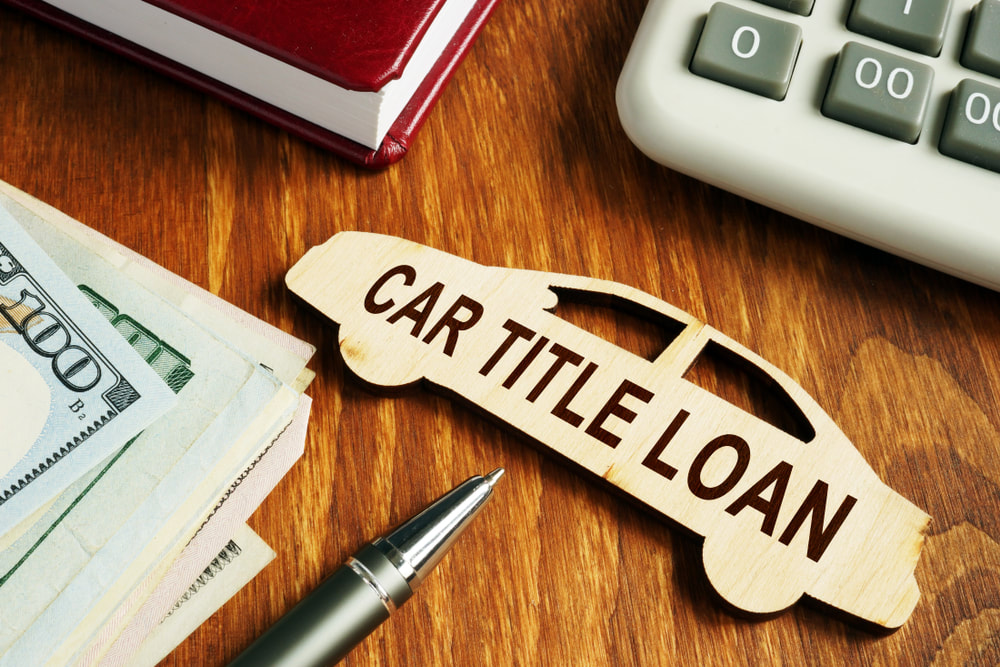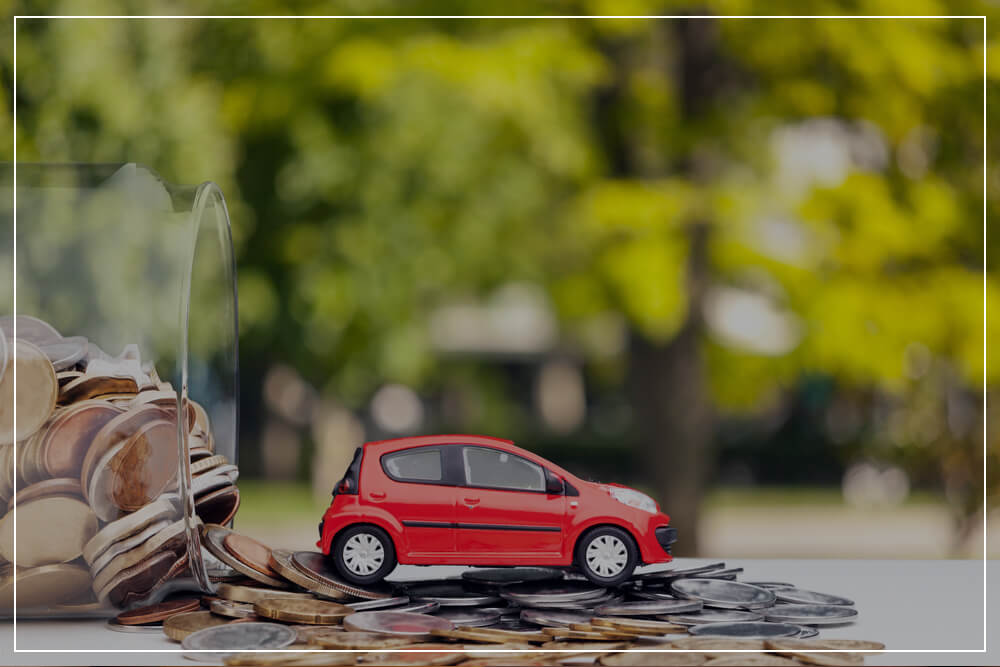|
If you're looking for a useful and effective way to get cash, you may have heard that some lenders guarantee title loan approval. Approval criteria vary depending on the sort of loan you pick since some may demand collateral while others may not. Title loans are a safe financing choice with a wide range of eligibility conditions. With fewer restrictions, more persons in need of financial assistance may be eligible for assistance. If you need money and own a car, you could have a high chance of getting approved. A car title loan is an effective short-term loan in which the borrower's vehicle serves as security. Borrowers are often customers who have exhausted all other possibilities for borrowing. Here's how to secure a car title loan if you reside in a state that allows them. The borrower presents the car to the lender along with the required papers. Although some title loan applications are available online, lenders must still examine the vehicle's condition and the accuracy of the documentation before issuing payments. The lender holds the title to the car, sets a lien on it, and then provides the borrower with the funds. The loan limit is often 25% to 50% of the car's cash worth (The borrower repays the loan, plus fees and interest, within the period allotted (usually 30 days) and reclaims the lien-free title. You'll Need the Following Documents:To qualify for a car title loan, often known as a pink slip loan, the borrower must own the car outright and have no liens on the title. Specific paperwork is also required by lenders, which may include any or all of the following:
A title loan does not require good credit, and most title-loan lenders won't even examine your credit because the loan is solely based on the vehicle's resale value. To qualify for a title loan, you do not want to be working. Fees and Rates:Traditional bank loans are far more costly than car title loans. Interest rates vary by jurisdiction, but they are often set at 25% per month or 300 percent yearly in states where they are not capped. To avoid falling into default, a customer who borrows $1,000 must repay $1,250 after 30 days. Most lenders charge a lien fee. Some lenders levy origination costs, document fees, essential fees, processing fees, and other fees in states where title lending is not regulated. The expenses add up rapidly and can total $25 (or more) in addition to the loan and interest charges. When calculating the overall cost of the loan, make sure to include all costs. Final ThoughtsSomeone who owns a car outright, is aware of the loan's possible high cost and has a fair expectation of being able to repay the loan before the payback period ends are the most outstanding candidate for a car title loan. A car title loan might result in the vehicle being sold for half or less of its worth if there is no clear and realistic strategy for repaying the debt. Many title-loan debtors renew their loans numerous times, increasing the overall cost of the loan. As a result, the most difficult factor to consider is your capacity to repay the loan on or before the due date. FAQsWhat are the conditions for obtaining a car title loan?
You'll Need the Following Documents.
Is proof of income required for a title loan? Yes, there are no-income-verification title loans that allow you to borrow money without having to show proof of employment or income. Specific lenders will provide you with a vehicle title loan without requiring you to show evidence of payment. These lenders understand that you don't need a job to show that you can repay your loan. Is it simple to receive a title loan? A car title loan, sometimes known as a "quick auto loan," might be simple to obtain if you have your car outright or owe very little on it. However, quick and easy does not always imply quality, and this form of loan comes with high costs and the danger of losing your automobile. When looking for a new automobile in Columbus, Ohio, most individuals prioritize selecting the most excellent vehicle. They do this by looking at dealerships and private sellers for the automobile they want. Over 60% of auto purchasers finance or lease their new or pre-owned vehicle, and many car buyers consider financing as an afterthought. The payment and interest rate for a vehicle is essential since it is the second most costly purchase most individuals make (after a home). On the other hand, intelligent consumers understand that car finance is as crucial as the vehicle itself. So, before looking for a car, they shop and get pre-approved for finance. Though you may be itching to get behind the wheel of that Roadster, we recommend that you look into your auto financing choices first. The distinction between vehicle loans and dealer financing:A vehicle loan is a personal loan used to buy an automobile. The automobile serves as collateral (security) for the loan, making it a secured personal loan. Car loans are often significantly shorter than house loans, with loan terms ranging from one to seven years, depending on the lender. Car loans may be used to buy new or used automobiles from dealerships or private sellers. Dealer finance is a loan given by automobile dealerships that allow clients to drive away with a vehicle sooner while also assisting the car salesman in closing the transaction. Dealer financing sometimes has cheaper interest rates than a traditional auto loan, but it usually comes with a payment at the end of the term. Dealer financing programs are mainly restricted to new cars. Car Loan:For many individuals, getting a vehicle loan via a bank is a good alternative, mainly if you deal with a bank that already has your business. They may be willing and able to give you a cheaper financing rate than a dealership since they know you and connect with you. If you conduct all of your banking with them, the bank may even give you incentives to finance. When you finance a vehicle via a bank, you have the option of shopping around to other institutions to get the best offer or conditions for your budget and credit profile. Furthermore, you have a greater possibility of interacting with live and accessible customer support professionals when you want assistance. Pros:Automobiles, both new and used: Car loans may be used to buy new, old, antique, or environmentally friendly automobiles from individuals, auctions, or dealerships. Choice: You can search around for the best deal since there are so many lenders and vehicle loans to pick from. Flexibility: Car loans' flexibility might help you keep greater control over your debt throughout the loan. For example, you may be able to refinance to a lower interest rate, convert to a fixed rate, or adjust the frequency of your payments. Cons:Higher rates: Vehicle loans seldom advertise interest rates between 0% and 1%; instead, interest rates on car loans are frequently above 5%. Approval time: Unlike dealer financing, which may be granted on the spot, vehicle loan applications might take anywhere from some time to several days to complete, depending on the lender. Less space for haggling: Car loan lenders may be less willing to negotiate loan conditions. Their initial offer may be their finest. Dealer Finance Loan:Even while a typical bank might be a good option for financing your new wheels, a local credit union may be a better fit. Banks are in the job of earning money for their top shareholders, which might result in interest rates that aren't as low as those offered by credit unions since members are also stockholders. Credit unions not only provide cheaper loan rates than regular banks, but they are also more accommodating when it comes to your narrative. If your credit history has been harmed, a credit union is less likely to view you as a one-dimensional, high-risk consumer. A credit union is willing to change the loan product to help you succeed. While the vehicle loan application and underwriting processes are identical at both organizations, credit unions are more likely to listen to your unique situation. They will consider unforeseen scenarios and crises that we may all face. Pros:Handles Everything: Dealer financing is handy since you may choose a vehicle, get funding, and drive away the same day. The dealer handles the whole financing procedure, including all documentation, for you. Inexpensive interest rates: Dealer financing generally comes with appealing interest rates of 1% or less and low installments during the loan duration. Negotiable: You may work out many aspects of finance with the dealer. Dealers may attempt to offer you a better deal than any of the auto loans you mentioned to get you to finance with them. Cons:Only new automobiles are allowed: Dealer financing is often limited to new automobiles, which are more costly and depreciate quicker than used cars. Payments in balloons: Because you must make a lump sum 'balloon payment' after the credit term, many dealer finance options are only available at such low-interest rates. Possibility of a higher selling price: A financing rate of 0% to 1% may seem attractive, but it might be a sales technique to stimulate the purchase of the car at a higher price. Conclusion:Make sure you understand all of the terms and conditions for each financing alternative and that the fees are within your monthly budget and for a long time. Calculate the overall cost of the vehicle throughout the life of each loan, as well as any possible trade-offs. FAQsWhat's the difference between bank finance and dealership financing?
When you get dealer-arranged financing, the dealer gathers information from you and sends it to one or more potential car lenders. Alternatively, with the bank or other lender financing, you apply for a loan directly with a bank, credit union, or another lender. Why should you not finance your vehicle via a dealership? Because the dealer is acting as a middleman, the interest you pay is often reflected in the dealer's reward for getting the loan. Your credit score will determine the rise in interest rate, and a higher interest rate may need a longer pay-off time to make your monthly payments affordable. Direct loan or dealer financing: which is better? Consumers prefer direct financing in some instances because they may get competitive interest rates through a bank, credit union, or finance firm. However, keep in mind that dealers might provide cheaper credit rates than the manufacturer in many circumstances. Furthermore, the dealer will complete all of the work for you. Americans are borrowing more money than ever before to purchase cars. If you want to buy a new car, you'll almost certainly need a loan to help you pay for it. According to credit-reporting agency Experian, the average loan amount for a new automobile was over $35,000 and $23,000 for a used car in the second quarter of 2021. Americans owe nearly a total of $1.3 trillion on their auto loans. When you consider that the entry barrier isn't particularly high, these figures may seem less startling. According to Experian data, a good credit score for buying a car with a loan is normally above 660, although there is no industry-wide, official minimum. Read on to find out how auto lenders utilize credit scores and how you can increase your chances of getting a vehicle loan even if your credit isn't ideal. What Credit Scores Are Used by Auto Lenders?The FICO Score is the most widely used credit score, with 90% of leading lenders utilizing it. It's a multi-versioned general-purpose credit score. Business-specific scores are also available, including one for the auto financing industry. It is up to them when it comes to the credit score methodology that each lender utilizes. Unless you ask potential lenders what credit score they look at, you won't know. If you want to see your credit score before applying for a loan, which we encourage, it's usually preferable to check your general-purpose FICO score. What impact does my credit score have on my auto loan?Your credit scores may have an impact on your ability to obtain a car loan, as well as the interest rate and terms you are provided. Before you start looking for a new or used car loan, it's a good idea to check your credit ratings and understand how they can affect the conditions you get from auto lenders. This is also a good time to double-check your credit reports for any inaccuracies that could lower your credit score. What is a good credit score for purchasing a vehicle?In general, the lower the interest rate, the better the credit score. The average interest rates on a new car loan for each borrower category were as follows, according to Experian's second-quarter data:
For those with poor credit, some vehicle lenders may need a cosigner. A cosigner is an individual with good credit who agrees to legally assume responsibility for repaying the loan if the principal borrower fails to do so. Is There a Minimum Credit Score Requirement to Get a Car Loan?Car loan credit requirements differ by lender, and no industry guidelines are dictating which credit score a lender should use or what minimum score is required. Lenders have their standards for evaluating your credit and other financial considerations. While your credit score and report are vital when looking for a car loan, lenders consider various factors when considering you for a new loan. They'll look at your salary, existing debts, and if you've paid off previous loans on schedule. Lenders may also use your auto-specific credit score when making auto loans. The FICO Auto Score, for example, runs from 250 to 900, whereas your standard FICO or VantageScore scores vary from 300 to 850. A better score means the lender is taking a smaller risk in either scenario. In the end, creditors are looking for signs that you've handled debt properly in the past and will likely repay your new loan on schedule and in full. Any negative factor on your credit reports, such as a collection account or multiple late credit card payments, will stick out, so be prepared to explain any flaws. Getting loans with the best rates and terms may be more difficult if you have these types of bad entries in your credit history. What elements go into determining my credit scores?There are various keys to obtaining higher credit scores regardless of the scoring mechanism. The graphs below show the components of the FICO® 8 credit score and VantageScore® 3.0 credit score models. Banks want you to repay what you borrow, and therefore your payment history is important to them. That's why your payment history, or how many on-time payments you've made on loans or credit cards, is such an important aspect in determining your credit scores. Making late payments will result in a payment history of less than 100%, which can negatively impact your credit score. Utilization of credit Credit usage is a method of determining how much of your overall credit limit is being used. Generally, you should maintain your total utilization as low as possible - most experts recommend keeping it under 30%. Accounts age The length of time you've had credit cards or other loans open is shown by the age of your credit history. The older your average account is, the better your credit scores will be. Meanwhile, having a lot of new accounts will lower your average account age, which will hurt your credit scores. Combination of accounts Your account mix, or the different sorts of credit accounts you have, could affect your credit scores. Lenders prefer to see that you have a track record of making timely payments on various credit accounts rather than just one. As a result, a combination of credit cards and other loans, such as auto loans, school loans, and mortgages, may help you improve your credit scores. Inquiries When you apply for credit, set up utilities, or rent an apartment, you will receive hard and soft inquiries. Hard inquiries linger on your credit reports for two years on average. Furthermore, if you have a high number of hard inquiries in a short period, it may damage your credit ratings since lenders may perceive you as a credit seeker. How to Raise Your Credit Score Before Purchasing a Vehicle?Don't worry if your credit score isn't great just yet—you're not alone. Before applying for an auto loan from anywhere, there are several things you may do to enhance your credit score. Here are a few things you can do to improve your score reasonably quickly:
Finding an auto loan after a repossession may seem challenging, and it's difficult to imagine who would want to loan you money for a new car if you've missed so many payments that your car has been repossessed. There are a lot of lenders, as it turns out. People with bad credit, no credit, bankruptcy, and repossession can use auto lending networks to find loans from a range of lenders such as Nabsus. How can you get a car loan after repossession?A car loan after repossession can help borrowers recover control of their finances, and there are a few methods you can use while applying for new credit and seeing cars around. Follow these steps: Know your creditBecause higher interest rates are associated with bad credit, knowing your credit score provides you with a clear-cut idea of what to expect if you are approved for a loan. Check your credit reports for errors and, if necessary, file a dispute. It's free once a year, and you can pay to get your credit scores. Many credit card companies provide free credit scores in their online customer accounts. Depending on how recently the repossession occurred and your credit behavior since then, your score may be greater than you expect. Select the right lenderFind a lender that will accept applications from those with bad credit. Check out our website at www.greatcitycars.com details on Buy Here Pay Here auto loans after repossession. We deal in this area and have helped hundreds of clients with a loan, even on bad credit. Establish credit before making an applicationAfter a credit event like repossession, building credit shows a lender that you're less of a risk, enhancing your chances of getting approved for an auto loan and getting a lower APR. Follow the following tips to build your credit score.
Put money aside for a substantial down paymentGetting approved for a car loan after a vehicle has been repossessed is difficult because lenders view a person who has had a vehicle repossessed as a risk. However, just because you have a history of repossession on your credit report doesn't imply you'll never be able to possess a car again. Putting a down payment on your next auto loan is a terrific method to improve your chances of getting approved by lenders because it shows that you can save money, which lowers the risk for the lender. Many experts recommend putting down 20% for a used car. Lastly, Be honest about your financial situationWhen a buyer obtains a vehicle that is simply too pricey for their budget, repossession occurs. Examine your financial situation to see how much automobile you can afford for the total loan and monthly payment. The auto finance calculators will assist you with your planning. Not to mention the option of purchasing used rather than new is highly preferable.
At Great City Cars, we will help re-stablish your credit and get you into a good used car you can afford. We accept down payments as low as $500 and your payment is only $95/Week. No credit checks and 99% Approval rate! Sometimes life gets complicated and things get rough. We understand. Our goal is to help you begin the process of getting things moving in the right direction for you. We also understand that life's challenges and drama are overwhelming at many times.
That is why we are here. We know that although your credit may not be good, you still need reliable transportation. So we created a Buy Here Pay Here Car Dealership in Columbus to help. We are forthright and will work with you for just about any situation. If you have a valid drivers license and a job, we will approve you for a used car that you can drive away in today. We are the bank, so we do not pull credit. We make a deal with you, and you pay us each week, and you get to drive your car. We offer some of the lowwest downpayments for a buy here pay here car lot and we will cap your weekly payment at just $95/wk. Now, we do require you maintain your car. Some of the cars need maintenace, so please know that while we do our best to check for any major defects of all cars we sell, we do not warranty the car itself. This is not to hurt you, this is just a rule in place because these are used cars. We are being transparent here for you. So, if you have bad or no credit, bankruptcy, repossesin or any other credit issues, we will look past these and get you apporved. Our inventory is constantly moving, so wat we receommned you do is apply online and then come to visit us on our lot at 6147 Westerville Road and find a car that can fit what you need today. We have all types and brands of cars, trucks, SUV''s Vans and more, so we know we can get you into a car today. If you would like to get started, click HERE If you are living in Columbus Ohio, you may be offered a Car Allowance from your job. Consider your alternatives when it comes to your automobile allowance. Keeping your existing vehicle or upgrading to a car that better suits your needs: Making a car budget compromise to cover additional maintenance and operating expenditures, or keeping part of it as cash in your pocket. The proper decisions might help you save money on taxes and interest and ensure you have the most excellent auto and expenditure coverage for your requirements. Allowance for a car:Your company may offer you a car allowance to cover the cost of using your vehicle for work reasons. An automobile allowance is supposed to help you cover the costs of driving your cars, such as gas, tires, repairs, maintenance, registration, and insurance. In actuality, it's entirely up to you how much of your allowance you spend on your automobile, how much you pay toward operating costs, and how much you keep as additional cash in your pocket. You must determine if your existing vehicle suits your job and leisure needs. If it does, it could be a good idea to approach the vehicle allowance as extra cash in your pocket and put some of it toward your existing car's operating costs and any loan repayments. Traveling between job sites, hauling trailers, or transporting equipment and stock should be accounted for. However, variables like fuel efficiency, comfort, power, and storage are also critical considerations. Consider how you'll use your car outside of work hours, how frequently you'll update, and how important ownership is to you. The best tips to maximize your car allowance are as follow:Make the most of your automobile allowance: First and foremost, think about whether you genuinely need a new automobile. Consider what your business uses the car for - will you be transporting clients? Is it more important for the automobile to make an excellent first impression, or is it merely transporting you from point A to point B? No Finance Of course, the first choice is to take out no loans at all. You use the money you get as a car allowance to cover the costs of your existing vehicle's maintenance. Although you have the freedom to spend it any way you choose, the whole budget is still considered taxable income. Finance for Business Many employees who get a car allowance are eligible for chattel mortgage financing. A chattel mortgage will often provide you with a better price and more flexibility than other consumer loan options if most of your driving is for business reasons and you complete the application conditions. Alternatively, you can get a car lease. While there is no option for trade-ins or deposits, and you should be mindful of the ATO's mandated minimum residual values, this option allows you to either pay off the residual or upgrade to a newer car after the term. Consumer Loans If you aren't qualified for commercial financing, a vehicle or secured personal loan is the next most common alternative. You can lock in a low rate by using the automobile you're buying as collateral for the loan, but you won't be able to borrow more than the car's worth. If you have a mortgage, you might utilize the equity in your home to purchase a car. While this will generally provide you with a low rate unless you pay off the additional borrowings fast, you may wind up paying a significant amount of other interest over the life of the loan. Significantly more than you would with a conventional three to five-year auto loan. Novated Leasing As an individual employee, your firm may offer you the option of foregoing a car allowance in favor of a novated lease, commonly known as pay packaging or salary sacrifice. Novated leasing allows you to use pre-tax income to pay for your automobile (and, in the event of a Fully Maintained Novated Lease, your operational costs). A novated lease not only saves you money on GST and income tax but also provides you with the convenience of a single monthly payment that covers all of your car's expenditures. Conclusion: We have listed the best and effective ways to get the most of your automobile allowance. If you want to learn more, read this post, and you will be able to do it quickly. The proper decisions might help you save money on taxes and interest and ensure you have the most excellent auto and expenditure coverage for your requirements.
|
Buy Here Pay Here Car lot In ColumbusDownpayments as low as $500 and payments only $115/week. If you have a job, a license and insurance - Your Approved! Categories
All
|







 RSS Feed
RSS Feed